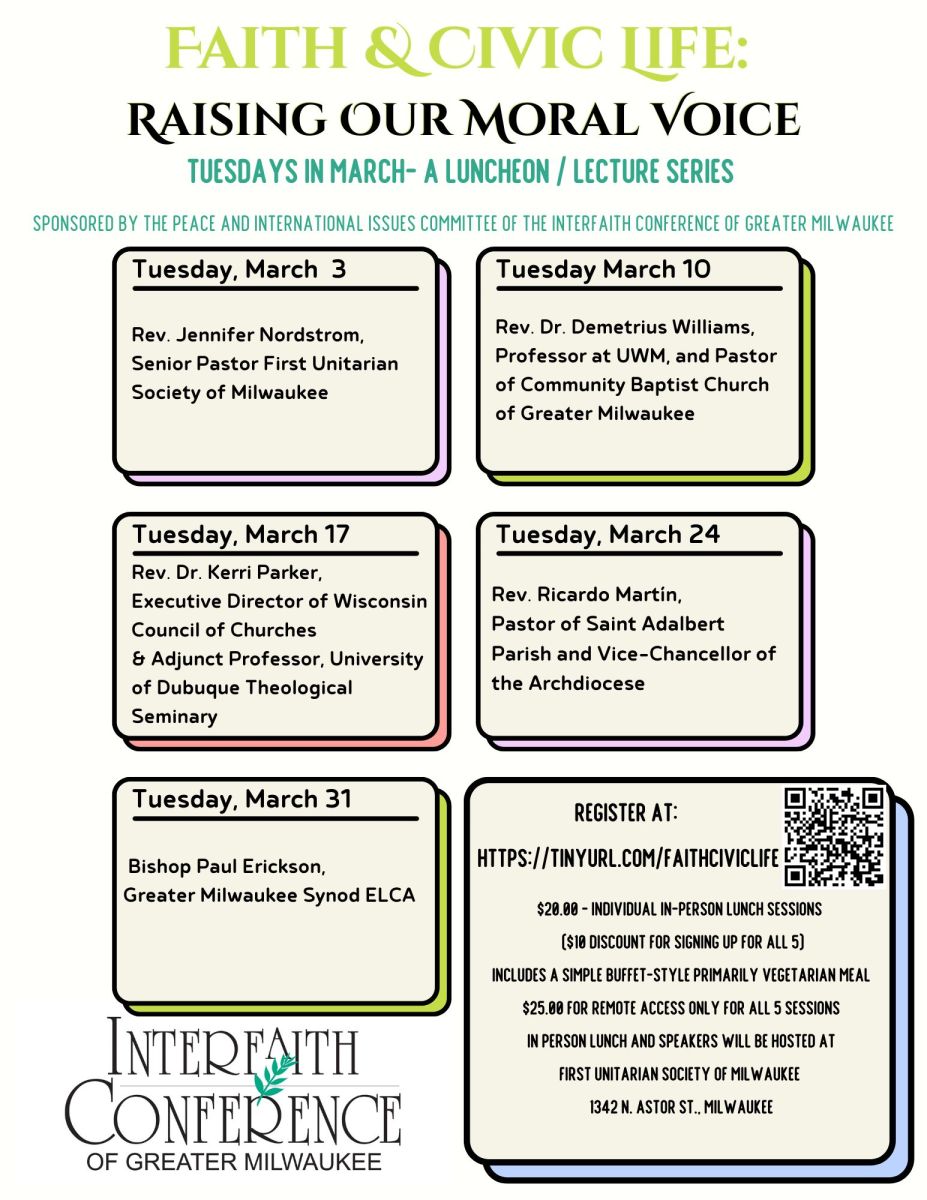STATEMENT OF SOLIDARITY AND CONDEMNING ANTISEMITISM (2025)
INTERFAITH CONFERENCE OF GREATER MILWAUKEE
STATEMENT OF SOLIDARITY AND CONDEMNING ANTISEMITISM (2025)
The Interfaith Conference of Greater Milwaukee is horrified by and unequivocally condemns the antisemitic terror attack that occurred on June 1, 2025, on the eve of the Jewish holiday of Shavuot. A man identified as Mohamed Sabry Soliman hurled “makeshift incendiary devices” at a group of peaceful walkers advocating for return of Israeli hostages in Gaza, injuring twelve persons, some severely, while stating afterward that he wanted to kill all Zionist people. He has been charged with a federal hate crime and 16 counts of attempted murder. The Interfaith Conference prays for the recovery of the victims and for their families.
This tragic incident follows two other recent widely known acts of violent antisemitism. On April 13, 2025, an assailant attempted to set fire to Pennsylvania Governor Josh Shapiro’s residence while he and his family were observing Passover. The suspect, Cody Allen Balmer, expressed hatred toward Governor Shapiro for his support of Israel and has been charged with terrorism and attempted murder.
And on May 21, 2025, two Israeli embassy staff members, Yaron Lischinsky and Sarah Milgrim, were killed outside the Capital Jewish Museum in Washington, D.C., by Elias Rodgriguez, who shouted after the attack that he did it for Gaza. He has been charged with murder and the act is being investigated by the FBI as targeted antisemitic violence.
We urge law enforcement to conduct a full and transparent investigation and to hold the perpetrators accountable. We also call on public officials, faith leaders, and civil society to unite against the rising tide of hate that continues to endanger communities across the country.
Although these atrocities have not taken place in our geographic area, we are aware of the effect such acts of terror can have on our local community. Our prayers, our support, and our commitment to continue to act in solidarity are with those in our local Jewish community as they continue to struggle with the immoral scourge of antisemitism.
Such acts of violence, hatred and bigotry have no place in our society. The Israel-Hamas war has elicited many strong feelings. Regardless of how anyone feels about the Israeli government, Hamas, Israelis or Palestinians, there is no justification - ever - for targeting Jewish individuals or communities. Holding Jewish Americans collectively responsible for the actions of a foreign state is both morally wrong and deeply dangerous. Such thinking echoes the very logic of bigotry and collective blame that has harmed countless innocent people throughout history.
We are blessed to live in a country where we have been granted the right to peaceably assemble, exercise free speech, and worship as we please, among other rights. Let us resolve to protect for others those same rights that we claim for ourselves.
The Interfaith Conference also reaffirms our determination to speak out together against antisemitism, Islamophobia, and all forms of hate-fueled violence. Hate has no place in our communities. Let us recommit ourselves to building a society rooted in justice, compassion, and the shared humanity that binds us all.
***
Founded in 1970, the Interfaith Conference of Greater Milwaukee is a nonprofit organization of 22 member faiths and denominations, whose mission is to build relationships among people of faith to promote greater understanding, dignity, and respect, and to advocate for the inclusion and acceptance of all.
Its programs include:
- Dialoguing to build personal relationships
- Conducting public programming to counter hate and fear while fostering interfaith, intercultural, and interracial understanding, tolerance, and friendship
- Working together on hunger, unemployment, environmental challenges, and other social issues to create a better society for everyone
We stand with one another against hate, racism, and discrimination to promote a just community; and we serve together to strengthen our communities and build relationships across diverse faith traditions and racial, cultural, ethnic, and generational divides.


